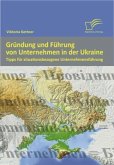When at the turn of the 1980, the face of the political world was largely remodelled with the vanishment of classical East and West blocs, the economical wasteland created by the failed socialist planned economic system constituted a fascinating research pasture for economists of all disciplines - especially macroeconomists and specialists for economic politics. At universities, new faculties for transformation studies were created. Authors like Rodrick elucidated the reasons for the acute period of the COMECON alliance in form of teh Soviet trade shock, de Melo, van den Mortel a.o. discussed reasons for discrepancy of initial condions, Aghion & Blanchard about the speed of transition, just like Wyplosz, Fischer & Sahayestablished a balance sheet after a decade of transition.
However, the preponderant part authorship dedicated to the fate and future of Central and Eastern European countries left apart a force of influence which disciplines of business adminitration have discovered for disciplines like management and staff motivation: culture.
The author of the present study did extended research for working papers a.o. which may provide hints for characteristics of development visible in two exemplaric states, out of which one used to be part fo the soviet Union (Ukraine), the other a satellite ""brother country"" (POland), which lie below the surface of economic behaviour and performance. The result of this quest was y and large that there indeed do exist works which deal with the selected econo-political aspects; however, most authors refer to the five dimensions of national culture presented by Hofstede, which in the author's opinion oversimplify the complex and difficultly obervable domain fo culture, sometimes even is entangled in contradictions like with the high masculinity/femininity index for Italy.
However, the preponderant part authorship dedicated to the fate and future of Central and Eastern European countries left apart a force of influence which disciplines of business adminitration have discovered for disciplines like management and staff motivation: culture.
The author of the present study did extended research for working papers a.o. which may provide hints for characteristics of development visible in two exemplaric states, out of which one used to be part fo the soviet Union (Ukraine), the other a satellite ""brother country"" (POland), which lie below the surface of economic behaviour and performance. The result of this quest was y and large that there indeed do exist works which deal with the selected econo-political aspects; however, most authors refer to the five dimensions of national culture presented by Hofstede, which in the author's opinion oversimplify the complex and difficultly obervable domain fo culture, sometimes even is entangled in contradictions like with the high masculinity/femininity index for Italy.








